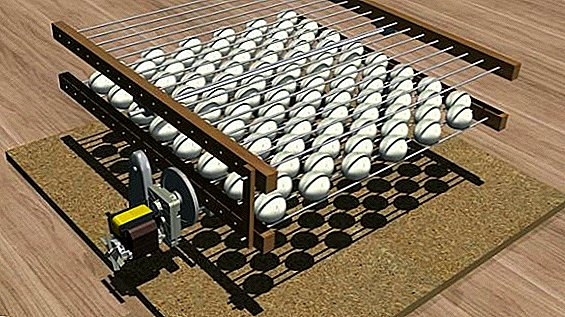
Ginger is a very healthy product with an unusual taste. Many use it widely in the diet, and do not want to give up during the breastfeeding period.
How useful is this? Or maybe altogether bad? This article is designed to answer these and some other questions.
Next, we tell you whether nursing mother can eat pickled ginger or drink ginger tea, and how to properly enter into the diet.
What are the concerns of nursing moms?
The chemical composition of ginger is gingerol, giving a sharp and spicy taste to the plant. And as a burning substance can cause irritation. Essential oils that are part of ginger, with the wrong approach and dosage can cause undesirable effects: allergic reaction of the baby and mother, changes in the quality of breast milk. But everything is strictly individual, and in some cases, ginger can bring a lot of benefit.
Can I use with HB?
We will understand whether or not to use ginger root for HB. In moderation, yes. But with reservations: important is the method of cooking the root - it depends on the amount and balance of useful or, conversely, harmful substances and their effects on the body.
 Marinated ginger should not be included in the diet of a nursing mother (and any marinades, too).
Marinated ginger should not be included in the diet of a nursing mother (and any marinades, too).- Because of dzhenzherola dried ginger is more burning than fresh (in a dry form its concentration is greater, and part of the original substance turns into shogaol - even more acute substance), so it should not be used during lactation.
- Do not eat ginger and seasonings, because they may contain chemical impurities and other spices.
In this way, Fresh ginger and making tea from it are the best options.. In a fresh root crop there is a greater amount of vitamins (groups B and C), trace elements and amino acids, which it is famous for.
It is possible to include ginger in your diet only when the baby is six months old.
Impact of use during breastfeeding
On mother and breast milk
- Ginger is considered a lactogonic agent - it can be an indispensable tool if the child does not have enough milk.
- Ginger compress helps get rid of lactostasis (however, it should be remembered that if it does not get better within a few days, then you need to contact a specialist).
- As a bitter seasoning, ginger changes the taste of milk, so it is better to introduce this product into the diet gradually, otherwise the baby may refuse milk.
- Enhance immunity.
- Tonic effect.
- Ginger tea successfully copes with colds due to the high content of vitamin C, but only if there is no temperature.
- Acceleration of metabolism - ginger can be used for burning fat and losing weight, it also has a low calorie content.
On baby
- Decreased salivation.
- Enhance immunity.
- The root has a tonic effect, so it is better to monitor the reaction of the crumbs, it can become restless, it is more difficult to fall asleep - then the use of ginger will have to be limited.
If during pregnancy the root crop was not consumed, then during lactation it is better not to include it in the diet.
Contraindications
 Gastritis or ulcers - ginger irritates the mucous.
Gastritis or ulcers - ginger irritates the mucous.- Hypertension - Root has the property to increase pressure.
- Allergic reaction on the product.
- Any bleeding - ginger root thins the blood, for the same reason it should not be used in case of poor blood clotting.
- Colds with elevated body temperature.
Drug Compatibility
The product is combined with almost any medication, but there are exceptions. Ginger should NOT be used when taking:
- sugar lowering drugs;
- drugs to lower blood pressure;
- means that thin the blood, reducing its clotting.
It is undesirable to use ginger before taking medicine against arrhythmia and for cardiac stimulation - the root crop enhances their action.
How to apply to increase lactation?
The root crop in the menu can be included when the child is six months old, and his digestive system will be ready for new products. If the baby does not have allergic reactions, the portion can be increased. Experts believe that the use of ginger is shown to increase lactation in only three cases:
- Forced break in feeding. Then lactogonic remedy will help restore feeding mode.
- Mixed feeding. This is what happens when prikorm is introduced too early, and lactation has been oppressed. Restore it and called lactogonic tea.
- Milk shortage. The doctor diagnoses her, and then lactogonic tea and sometimes breast massage is prescribed to the nursing mom.
Contraindications to the use of ginger tea as a lactic agent are the same as in the general use of ginger (see. Contraindications for nursing mothers).
Lemon Ginger Tea Recipe
Ingredients:
 2-3 slices of ginger;
2-3 slices of ginger;- boiling water;
- sugar or honey (to taste);
- lemon.
It is possible to use all products only when the child definitely does not have allergic reactions to them.
Cooking:
- When choosing a ginger root, you must remember that it must be strong and preferably of medium size. Sluggish root vegetables better to immediately put aside.
- Next, the root is necessary to wash, peel off, rinse with boiling water and cut into small slices.
- Then the slices are brewed for some time (2-3 slices on a small kettle), sugar or honey is added to the present drink, lemon if desired.
How to drink?
The drink is introduced into the diet gradually.. 50 ml is used for the first time, if after a couple of days the baby does not experience allergic reactions and undesirable effects of ginger root, the tea volume can be increased: 150-200 ml from several times a week to a couple of times a day half an hour before feeding to restore the necessary lactation level. But if within 10 days there was no improvement, it is worth contacting a specialist.
Ginger root has many beneficial properties, which can be used while feeding a baby. As elsewhere, you only need to comply with the measure, and everything will be fine. Thanks for reading!


 Marinated ginger should not be included in the diet of a nursing mother (and any marinades, too).
Marinated ginger should not be included in the diet of a nursing mother (and any marinades, too). Gastritis or ulcers - ginger irritates the mucous.
Gastritis or ulcers - ginger irritates the mucous. 2-3 slices of ginger;
2-3 slices of ginger;









